|
Scrum Sevens
Scrum Sevens - Rugby's most bizarre injuries
Huw Richards
February 10, 2016
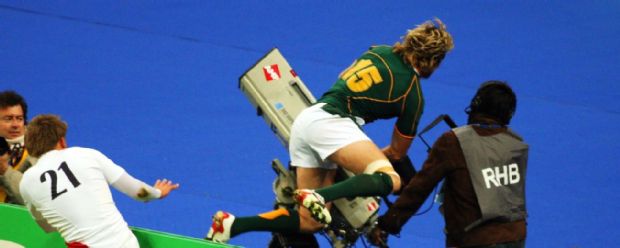 © (Photo by Stu Forster/Getty Images) Rugby has had its fair share of bizarre injuries. Last year Martin Castrogiovanni was sidelined after a dog bit him on the nose and just this week Jack Carty ruptured his spleen on a water slide and Ed Slater was sidelined after cutting his hand with a bagel. Scrum Sevens runs down some of rugby's more weird injuries. Peter Rossborough (Coventry and England), 1970s 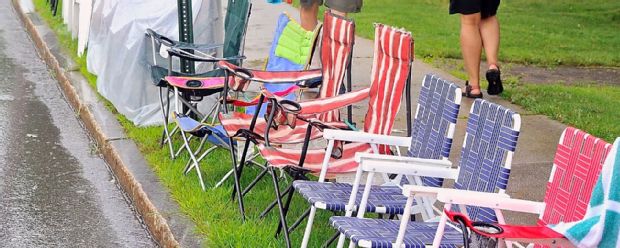 © Gordon Chibroski/Portland Press Herald via Getty Images He recently returned to the news as a sane and rational commentator, in his role as Coventry RFC's president, on their receipt of an unexpected and possibly unwanted cuckoo in the nest in the shape of Wasps' occupation of the Ricoh Stadium. And he lives on in rugby history as a decent England full-back who played his full part in one of their best and most unexpected wins - at Auckland in 1973 - and one of the last products of the Coventry golden age which lasted from the war until the mid 1970s which- had English rugby taken up competition earlier - would probably have them at or near the all-time list of cup and league winners. But we suspect that there is a group of Midlands schoolchildren now in comfortable middle age who will remember him chiefly as the deputy head whose rugby career was briefly interrupted by the after-effects of falling off his chair during school assembly. Gareth Williams (Bridgend, Wales and Lions), 1980s 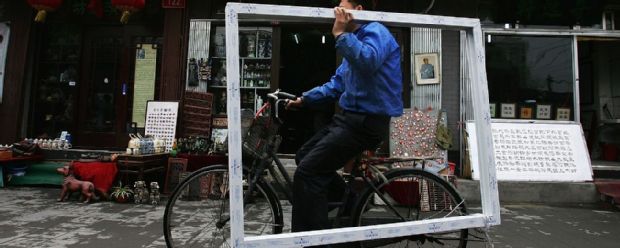 © Guang Niu/Getty Images Cardiff v Bridgend matches always had an edge in the 1970s and 1980s. A peak was reached in 1981 when referee Clive Norling, tiring of a succession of collapsed scrums, sent off Ian Eidman and Ikey Stephens - two-thirds of Wales's incumbent front row - before half-time in a midweek Arms Park clash. But possibly the most unwanted edge of the lot was the one on the frame of the portrait awaiting an on-pitch presentation before another Arms Park contest. Williams, a fine, combative back rower leading his Bridgend team up the tunnel before the match, came into unexpected, extremely painful contact with it and lacerated a leg. His subsequent comments to Cardiff officials were not recorded in the media, apparently on the grounds that The Western Mail has yet to put out an edition printed on asbestos. Jean Salut, France v Scotland 1969 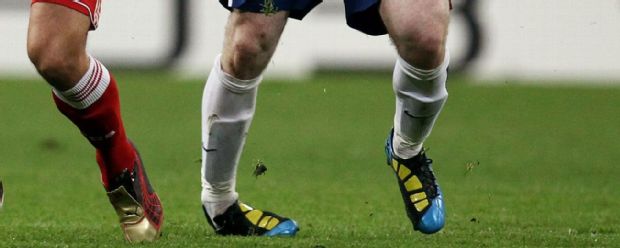 © Alex Grimm/Bongarts/Getty Images Many may have mourned when France abandoned the venerable Stade Colombes for the Parc des Princes in the early 1970s. Salut, a blond Russian-descended flanker from the TOEC club in Toulouse who played in two matches of France's first Grand Slam in 1968, may not have been among them. He had to have a pain-killing injection to be ready to play in the opening fixture of the 1969 Five Nations then, making his way up the steps which had to be climbed to reach the pitch, fell heavily over his ankle. With a prop, the magnificently named Jean Iracabal, as the official replacement France were forced into a wholesale restructuring of their pack and Scotland won 6-3, their last win in Paris until 1995. Salut was recalled for the next match, in Dublin, but dropped for good after another defeat. Johan Goosen, Toulouse v Racing Metro 2014 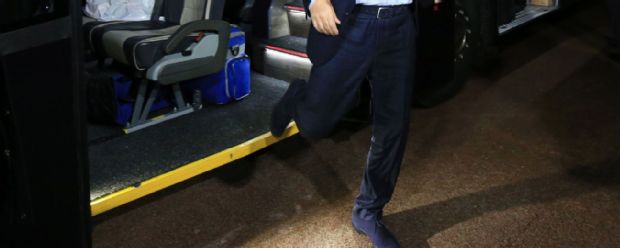 © Marc Atkins/Mark Leech Sports Photography/Getty Image France may be long gone, but there looks still to be a jinx on teams and players who call the Colombes home. Current occupants Racing Metro, as any team would, missed Jonny Sexton during his recent long absence recovering from a series of concussions but at least had a decent insurance policy in the solid shape of six-times capped Springbok Johan Goosen. Or at least they thought they did until late in December when, arriving for the match at Toulouse, Goosen injured his knee in the simple act of getting off the team bus. "He has a small problem with his knee and he will be out, I think, for two or three weeks," explained co-coach Laurent Travers, doubtless through gritted teeth as he contemplated the reduced options at his disposal. Toulouse won 15-9 to maintain their ascent from a poor start and strengthen their threat to other playoff and European Cup contenders, notably Racing. Leslie Balfour-Melville, Scotland v England 1871 Balfour-Melville anticipated Castro's mishap, if not perhaps so picturesquely, by 144 years when he was ruled out of the first international of all by a dog bite. He was also robbed of a permanent place in the record books, since he was still at school, only just 17 and would have remained to this day the youngest player ever capped by any of the eight foundation nations. He played the year after, still not yet 18, went on to be Scottish Amateur golf champion and a cricketer who led Scotland to victory over the touring Australians in 1882 and won a recall to the national rugby team in his mid 50s. A less painful canine calamity, at least in the physical sense, was visited on Cardiff Blues half-back Jason Tovey in 2013 when he missed a Heineken Cup trip to Toulon because his dog had chewed up his passport. Andy Farrell, Saracens and England 2005-6 As Owen Farrell battles to come back from the injury which ruled him out of this year's Six Nations, he should be able to count upon some sympathy from his dad, Andrew, who knows exactly how it feels. Farrell Sr arrived at Saracens from Wigan a decade back garlanded as the finest Rugby League player in Britain and winner of every individual prize the game had to offer. The conversion was slowed seriously by the aftermath of a foot operation, leaving the conscientious and highly competitive Farrell admitting to feeling serious guilt at his inability to contribute in his new code. Nor was there any escaping the mickey-taking of his fellow Lancastrian, Saracens' then director of rugby Steve Diamond, who cited one of Farrell's most cherished league prizes when he mocked the 'Man of Steel with the poorly toe'. Robert Calmet, England v France 1970 Getting hurt by Gareth Edwards, whether physically or psychologically, was one of the occupational hazards of rugby in the 1970s but Robert Calmet had good reason to think himself immune. He was, after all, a referee. But, appointed as only the third Frenchman to take charge of a Five Nations match he found himself in the direct path of an Edwards surge for the line and went down. Stopping the Welsh scrum-half was a feat beyond most players, never mind referees, but the Frenchman paid for it with a broken leg. Englishman Johnny Johnson took the whistle and Edwards himself departed not far into the second half. So it was that a replacement referee awarded a try by a replacement player as Maesteg's Chico Hopkins climaxed an immortal cameo appearance by sealing an extraordinary Welsh comeback from a 13-3 deficit. © ESPN Sports Media Ltd.
|
Live Sports
Communication error please reload the page.
-
Football
-
Cricket
-
Rugby
-
- Days
- Hrs
- Mins
- Secs
F1 - Abu Dhabi GP
Abu Dhabi Grand Prix December 11-131. Max Verstappen ()
2. Valtteri Bottas (Mercedes)
3. Lewis Hamilton (Mercedes)
4. Alexander Albon ()
5. Lando Norris ()
6. Carlos Sainz Jr ()
-
ESPNOtherLive >>
Snooker - China Open
Tennis - Miami Open

